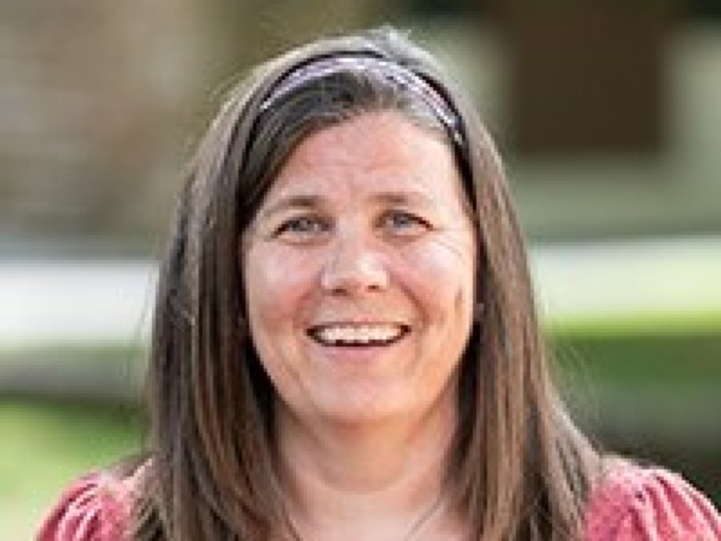
Beyond the Workshop
Career and Workforce Development Supporting the Profession Equity, Inclusion and Social Justice AVP or "Number Two" Senior Level VP for Student Affairs
January 2, 2024
“Wow, that speaker was amazing!” agree a host of folks. “We need to follow up on these ideas!” they expound. Then the Clery Annual Security Report is due. The Title IX case comes up. The trustee meeting. The roommate conflict goes nuclear. The daily tornado of work blows the aspirations out the window toward Oz. Sound familiar? Here’s how we interrupted that pattern at Butler County Community College (BC3).
In spring 2023, Robert Brown and Craig Elliott, two of the three authors (along with Shruti Desai) of Identity Conscious Supervision in Student Affairs, gave a Zoom talk to professional staff at BC3. The book pushes supervisors to engage with team members as whole persons and to do the self-work to understand how social identities are always a factor in working relationships. The session was well received but then languished in the tornado danger zone like all others.
What changed? How did we move this from a “one off” to a sustained multi-level conversation? We will give you the details of how we started, structured, and evaluated a book club. Then, we will share some lessons learned.
How we did it.
About one week after Brown and Elliott spoke, Jenn dropped by Case’s office. “The speakers were great, but two hours wasn’t enough.” Case smiled. Jenn continued: “I think we need a book club using their book. It needs to be voluntary. And we should have a few different clubs reading simultaneously so that no one would be in a club with their own supervisor.”
We wanted to invite professional staff across the college, so that involved HR. We wanted to purchase the books using funding for DEI Initiatives, which involved an approval process. T’s were crossed. I’s were dotted.
Jenn was really clear that she believed participation should be and feel voluntary. So, she sent the invitation, rather than Case, a VP. Sixteen folks signed up. We sorted them into three groups to ensure no one was with their supervisor. Case, Jenn, and another colleague each facilitated one group. Jenn created a curriculum based on the book’s chapters. We scheduled the final book club meeting to be joint – the three groups would convene to share their learnings and “ahas."
The clubs began in June and the final meeting occurred mid-September. Fifteen people completed (one left the institution). Staff members ranged in rank from entry-level to mid-managers to vice presidents. Four participants serve on the President's Cabinet.
People had conversations that were new to them in rural, very White western Pennsylvania. We discussed differences including race, gender, sexuality, and how they impact supervisory relationships. Central were conversations about how to identify our own biases and how to consider how someone with a different identity may be experiencing events.
Six people responded to an anonymous survey evaluation. All either agreed or strongly agreed that:
-
they learned new concepts they would use in their practice
-
they benefited from discussing ideas with their colleagues
-
they enjoyed the book club overall, and
-
they would be interested in future book clubs.
One person wrote, “I learned about the personal growth and work I need to continue to do. I also enjoyed sharing and learning about others’ experiences and perspectives.”
Thanks to Jenn’s idea, we went for deeper. And we made progress.
Lessons Learned
Voluntary participation is key in this kind of book club. It created a cadre of folks who care about a topic. More importantly, it’s necessary to focus on DEI or other work that requires introspection and feels risky.
Create fertile soil for seeds to grow.
-
Focus on learning. BC3 has shifted its professional development toward transformational rather than transactional change. Faculty, professionals, and front-line staff are involved.
-
Connect to an issue that people care about and that matters. In 2020, BC3 formed a DEI Council which raised awareness of the importance of DEI work.
-
Just do it! When folks come up with a new idea to improve any aspect of our work – we try to figure out how it could work rather than why it couldn’t. As Richard Sheridan, author of Joy, Inc. and Chief Joy Officer for Menlo Innovations asserts, “Run the experiment!”
And some shorter bits:
-
Consider the topics that might inspire folks. DEI was on our mind. Folks are now talking about Brené Brown’s Dare to Lead for a future club.
-
Try to keep groups to around 6 to maximize participation.
-
If there are multiple “sections” of the club, facilitators should collaborate on questions and prompts, and de-brief to learn how to keep groups from dodging thorny issues.
-
If there are multiple sections which plan to meet jointly at the end, schedule that final meeting at the outset to boost participation.
-
This can connect folks who rarely interact – across departments and levels.
-
We allowed book clubs to meet off campus during work hours. The local coffee house was a favorite.

Case Willoughby serves as the vice president for student affairs & enrollment management at Butler County Community College and is a member of the NASPA James E. Scott Academy Board.

Jenn Loue serves as the director of student access & success at Butler County Community College.